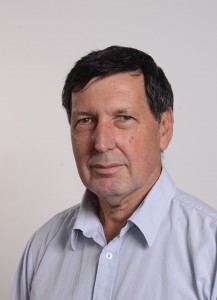 On the 08th of September 2022, as part of the Polaritonics Seminar Series, we will have the pleasure to have Prof. Nir Davidson discuss “Solving computational problems with coupled lasers“.
On the 08th of September 2022, as part of the Polaritonics Seminar Series, we will have the pleasure to have Prof. Nir Davidson discuss “Solving computational problems with coupled lasers“.
When: On the 8th of September 2022 at 11:00 CE time / 12.00 Moscow time
Where: Microsoft Teams
Nir Davidson received the B.S. degree in physics and mathematics from Hebrew University, Jerusalem, Israel, in 1983, the M.S. degree in physics from Technion, Haifa, Israel, in 1988, and the Ph.D. degree in physics from the Weizmann Institute of Science, Rehovot, Israel, in 1993.,He was a Post-Doctoral Fellow with Stanford University, Stanford, CA. He is currently the Peter and Carola Kleeman Professor of Optical Sciences in the Department of Physics of Complex Systems, Weizmann Institute of Science. He has authored or co-authored more than 240 journal publications. His current research interests include the areas of laser cooling and trapping of atoms, quantum chaos, quantum optics, Bose-Einstein condensation, laser physics, and physical optics.,Dr. Davidson was the recipient of the Allon Award, the Yosefa and Leonid Alshwang Prize for Physics, and the Bessel Award from the Alexander von Humboldt Foundation. He is the President of the Israeli Laser and the Electro-Optics Society and is a fellow of Optica (OSA).
Computational problems may be solved by realizing physics systems that can simulate them. Here we present a new system of coupled lasers in a modified degenerate cavity that is used to solve difficult computational tasks. The degenerate cavity possesses a huge number of degrees of freedom (300,000 modes in our system), that can be coupled and controlled with direct access to both the x-space and k-space components of the lasing mode. Placing constraints on these components are mapped on different computational minimization problems. Due to mode competition, the lasers select the mode with minimal loss to find the solution. We demonstrate this ability for simulating XY spin systems and finding their ground state, for phase retrieval, for imaging through scattering medium, and more.